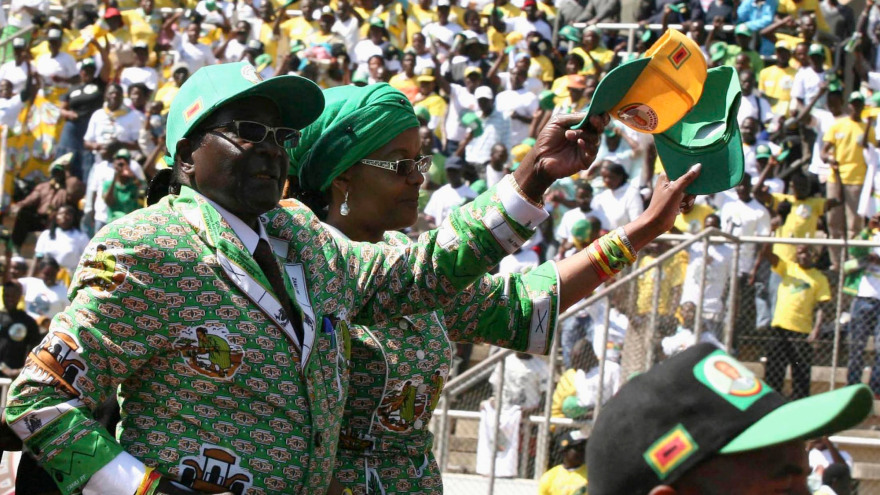
By Brian Latham, Franz Wild and Godfrey Marawanyika | Harare
Harare – Most Zimbabwean polling stations closed in an election that will decide whether President Robert Mugabe will extend his 33-year rule amid claims by his opponents that a flawed electoral roll threatened a free vote.
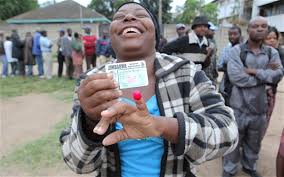
Both Mugabe, 89, and his main challenger, Morgan Tsvangirai, 61, said they’re confident of victory and will respect the result. While balloting for the southern African nation’s president and 210 members of parliament was due to end at 7 p.m. local time, electoral commission chairwoman Rita Makarau said turnout was high and polling booths would remain open as long as needed “even if takes us to midnight.”
Voting was largely free of the violence that marred the last Mugabe-Tsvangirai contest in 2008. Tsvangirai led the first round of that election before he pulled out of a run-off saying about 200 of his supporters had been killed.
“After all the conflict and stalemate, the suspicion, the hostility, I think there is a sense of calmness that finally Zimbabwe will be able to move on again,” Tsvangirai said after voting with his wife in Harare’s Mt. Pleasant suburb.
The ballot will end a coalition government accord arranged in 2009 by the 15-nation Southern African Development Community after an aborted election the year before. The deal left Mugabe, who’s led Zimbabwe since independence from the U.K. in 1980, as president and named Tsvangirai prime minister. The electoral commission’s failure to release the voters’ register prompted complaints by Tsvangirai’s Movement for Democratic Change.
Election ‘Illegal’
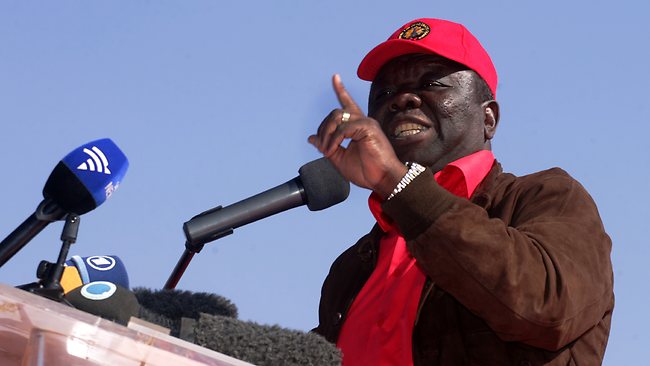
“We have stated clearly that these elections are illegal and unfair,” MDC Secretary-General Tendai Biti told reporters yesterday in the capital, Harare. “Despite that, we are absolutely certain we will win.”
Makarau told reporters in Harare that the election was “free and fair.”
As many as 2 million people have been excluded from the electoral roll, and in some cases a third of voters were turned away from polling stations, he said.
Mugabe dismissed the claims as “politicking” in remarks to reporters after he voted.
Dzikamai Tafumani, a 39-year-old mother of three in Harare’s Mabvuku township who supports Tsvangirai, said she wasn’t able to vote because her name didn’t appear on the voters’ roll at four polling stations.
“We are suffering in Zimbabwe,” said Tafumani, who works in a high school. “We get paid peanuts. Tsvangirai helped us a lot during the unity government. Mugabe wants us to die. It’s not a free and fair election.”
Voters’ Roll
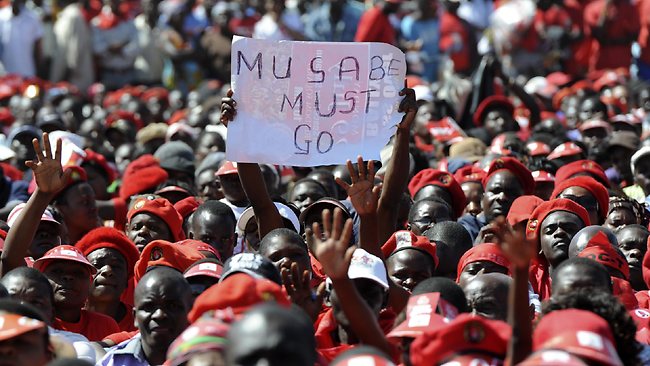
The electoral register remained the most contentious issue in the vote. The Zimbabwe Electoral Commission printed 8.7 million ballots for the elections, while there are 6.4 million registered voters, according to Makarau.
Former Nigerian President Olusegun Obasanjo, who’s leading observers from the African Union, called the elections “peaceful, orderly and free and fair.”
Emerging after casting his ballot in the Highfield township outside Harare, Mugabe waved a pink-inked finger showing he had voted toward reporters and said he still had plenty of work to do.
“I’ve got lots of things to do — repair our industries, which have collapsed,” he said. “There’s much work to be done in the mining sector.”
Mugabe and his Zimbabwe African National Union-Patriotic Front forced mining companies such as Impala Platinum Holdings Ltd. (IMP) and Anglo American Platinum Ltd. (AMS) to cede a majority share of their local assets to black Zimbabweans or the government. The southern African nation has the world’s second-biggest platinum and chrome reserves as well as deposits of diamonds, gold and coal. Tsvangirai has promised to repeal the measure.
Mugabe Education
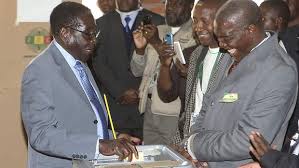
“Mugabe educated us really, so how can he expect us to believe his party will make us rich owners of huge mines and banks,” said Rudo Kaseke, 28, a seamstress in Harare’s eastern Mabvuku suburb. “We know how things work because he educated us and now he’s promising things that we know can’t happen thanks to his education. It’s very strange.”
During the life of the power-sharing government, ministers from the MDC helped to steer Zimbabwe out of recession and slow inflation that had soared to 500 billion percent, according to the International Monetary Fund. The economy has expanded every year since 2009, with Finance Minister Biti predicting 3.4 percent growth this year.
Biti abolished the Zimbabwe dollar in favor of a multi-currency system using mainly the U.S. dollar and the South African rand.
Mugabe’s Zanu-PF retained control of the security forces.
The electoral commission said on July 13 that it will announce results of the presidential vote by Aug. 5. The process took about a month in 2008. It hasn’t set a date for results from the parliamentary ballot to be released.
“There’s been little violence, which itself is suspicious because it means some other plan is being made to win,” said Pleasance Matibenga, a 30-year-old male nurse in Harare. “You won’t find anyone at ease or confident until all this is over. This country is never-ending stress and uncertainty.”
The AfricaPaper: Many thanks to Brian Latham, Franz Wild, and Godfrey Marawanyika in Harare for this report.









































